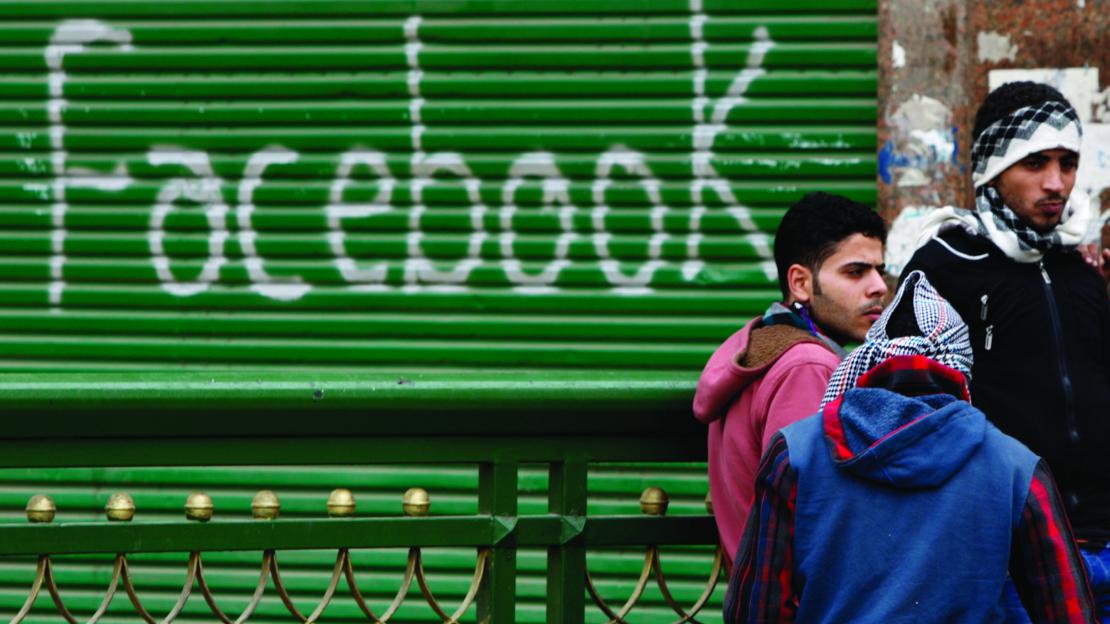In January 2011, Tunisian President Zine al-Abidine Ben Ali resigned after only 26 days of street protests, setting off a domino effect that launched what is now known as the Arab Spring. In Egypt, the departure of President Hosni Mubarak was even more precipitous, his resignation coming after only 18 days of popular demonstrations. In what have been called the “Facebook revolutions,” these developments have, in turn, set off a protracted wave of challenges to authoritarian rule throughout the Arab world—from Bahrain, Jordan and Morocco to Libya, Yemen and Syria. For a region mired in authoritarian repression for decades, the speed and scope of the Arab Spring has been breathtaking.
But is it useful to call this wave of popular protests a “Facebook revolution”? On the one hand, it is clear that social media has long been positioning itself to play a more important role in the region’s political processes. Satellite television networks such as al-Jazeera have been expanding public spheres in the region for the last two decades, directly challenging the highly controlled official media sectors in the Arab world; the spread of satellite phone technology is facilitating communication among urban and rural, rich and poor; and, after a slow start in the 1990s, Internet diffusion rates—though still limited, highly uneven across the region and subject to intense state surveillance—have recently been among the fastest in the world, producing signs of a “social revolution” among the region’s burgeoning younger generation by fostering of greater connectivity with the global arena. This is especially true in the case for women, some of whom are beginning to use the Internet to escape their constrictive social environments.
It is during the Arab Spring, however, that social media seems to have had its most immediate impact. It has facilitated the organizing and spread of new networked forms of protest—characterized by informality, decentralization and a leaderless non-hierarchy—that have proven useful in evading the repressive arms of authoritarian states. It has provided the means for disseminating large flows of politically sensitive information. And, given the trans-regional/global reach of social media technology, it has also contributed to the “modular” dynamic of the Arab Spring, fuelling the spread of revolutionary fervour from one country to the next.
Yet, describing the Arab Spring as a series of “Facebook-driven” revolutions masks important realities of the on-the-ground mobilizing efforts and agency of the protesters themselves. Perhaps most importantly, it obscures the limitations of social media in consolidating protest gains within the post-revolutionary political arena.
In Egypt, for example, some of the most significant protest mobilizations — in particular the widespread protests of labour—were organized using “old-fashioned” methods without the use of social media at all. Even the smaller networks of younger, empowered middle- and upper-class youth that so brilliantly deployed social media in their oppositional campaigns used it selectively in order to avoid repressive counter cyber measures by the state. Finally, the political success of social mobilization on the Web has ultimately been contingent on the willingness of ordinary citizens in the Arab world—many of whom are IT–illiterate and do not have access to Internet technologies—to occupy “real” public space, often at great personal risk and cost to themselves. The new political dynamics created by the recent series of popular uprisings in the Arab region has emanated from “the people,” not Facebook.
It is in the post-revolutionary moments of the Arab Spring, however, that the more limited contributions of social media will be seen clearly. While useful as a tool to preserve newly won democratic values in the face of counter-revolutionary moments, the social mobilization that social media facilitates cannot be sustained forever. In its place, one needs to build institutions—from new democratic regimes themselves to the political parties underpinning them—that can provide a more sustained presence for the social power that the Arab Spring has unleashed. Social media can be a useful tool in these processes, but it cannot replace the traditional political challenges of democratic institutional building that will determine, ultimately, the fate of democratizing reforms in the new Arab world of today.
Paul Kingston is a professor of political science at UTSC.
